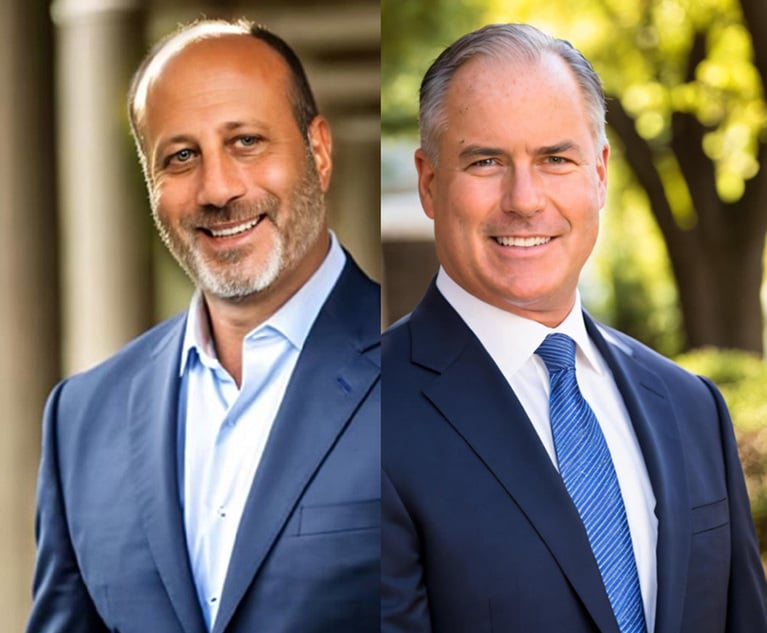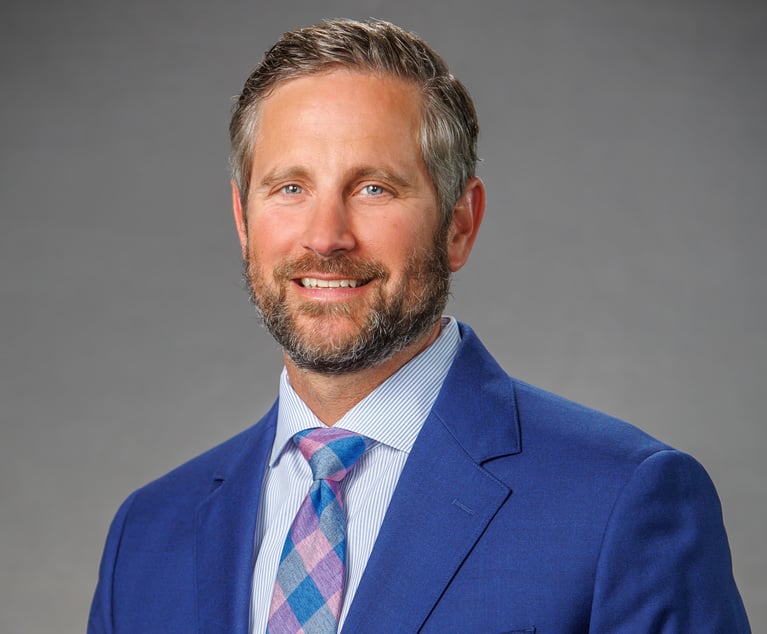Clergy Sex-Abuse Report Spurs Bipartisan Push for Legislation—But Will It Survive Lobbying Efforts?
In the wake of the release of a grand jury report detailing child sex abuse perpetrated by Catholic priests in six Pennsylvania diocese, lawmakers on both sides of the aisle have stressed the need for legislative action. But exactly what that action will be—and how it might be influenced by powerful lobbyists—remains to be seen.
August 20, 2018 at 05:54 PM
11 minute read
 Pennsylvania State Capitol, Harrisburg. Photo: Waldteufel – Fotolia
Pennsylvania State Capitol, Harrisburg. Photo: Waldteufel – Fotolia
Amid what is arguably the most vicious political climate in American history, the Republicans and Democrats of Pennsylvania's government have, for now, shown that they can come together on at least one issue: condemning child sex abuse.
On Aug. 14, Democratic state Attorney General Josh Shapiro released an 880-page grand jury report detailing child sex abuse perpetrated by Catholic priests in six Pennsylvania diocese spanning the past 70 years and involving roughly 1,000 victims—plus the concerted cover-up effort orchestrated by the highest echelons of the church to make it all disappear.
Although the report names many of the abusive priests, it was redacted to remove the names of some of the alleged abusers who claim that the grand jury proceedings violated their due process rights. The Pennsylvania Supreme Court is set to decide whether it stays that way.
Despite party divisions on issues from health care to immigration, the state's politicians have vowed accelerated action to hold child abusers accountable. One measure currently on the table is Senate Bill 261, which, if passed, would extend the statute of limitations for a victim of abuse to file legal action against their abuser to age 50.
“With the timeliness of this report and its findings, the statute of limitations bill passed by the Senate is primed for discussion in the House. We expect to schedule Senate Bill 261 for a vote in the fall,” said Pennsylvania House Majority Leader Dave Reed, R-Indiana.
He added, “While there are discussions about various amendments to the bill, ultimately, it will be up to the 203 members of the House to decide what will be approved and sent back to the Senate.”
House Minority Leader Frank Dermody, D-Allegheny, also expressed the need for legislative action.
“The residents of Western Pennsylvania who served on the grand jury have done something extraordinary.” Dermody said. “They heard the words of many brave survivors of childhood sexual abuse and they gave us a path to follow to find justice and protect all children. Lawmakers should pay heed to the report and take the necessary steps.”
Pennsylvania Republican Party chairman Val DiGiorgio said the issue of combating child sex abuse transcends politics, but expressed caution over rushing SB 261 through the system.
“I'm torn between victims having their day in court and making sure that the accused have due process,” DiGiorgio said.
However, the issue was more cut and dry for state Rep. Mark Rozzi, D-Berks, himself a survivor of child sexual abuse who is pushing for strong legislative changes. Rozzi says he is already seeing an outflow of bipartisan support.
“Our pieces are falling into place right now. I'm getting a lot of calls from House and Senate members saying, 'You have my support,'” he said.
Marci Hamilton, a University of Pennsylvania professor and CEO of nonprofit CHILD USA, observed that, although some legislative efforts have stalled out in the past in Pennsylvania, the grand jury report may have changed the political climate. Hamilton's group focuses on child protection policies and statute of limitation reform and she previously testified in support of changing the law to allow for victims to retroactively sue over the abuse.
“I do think it's more likely that we will see good legislation for victims passed this time around, in part because of the report,” Hamilton said. “It's getting harder and harder to not understand the need for the victims in the past.”
Political analyst G. Terry Madonna, director of the Center for Politics and Public Affairs at Franklin & Marshall College, said the report now puts the ball squarely in the state lawmakers' court, noting that it “adds enormous pressure for the legislature to take up these issues.”
That goes for the church as well.
“The Diocese of Harrisburg and the bishop that have called for major reforms, some argue too little too late, and let's be honest the church covered this up,” Madonna said. “There isn't any doubt in my mind that the Catholic Church has to go through an enormous change and ensure these practices are non-existent. These abuses must end.”
In a statement issued after the release of the grand jury report, Bishop Ronald W. Gainer of the Harrisburg Diocese said that the church has been focused on stamping out abuse.
“We will continue to make amends for the sins of our past, and offer prayers and support to all victims of these actions,” Gainer said in the statement. “We are committed to continuing and enhancing the positive changes made, to ensure these types of atrocities never occur again. Since the turn of the century, the church has instituted policies that take clear and decisive action to prevent future abuse.”
Can Past Damage Be Undone?
There may be wide support for SB 261, but some said that, without making the changes retroactive, the bill does little for past victims.
Rozzi said he plans to propose amendments to the bill that would eliminate the criminal statute of limitations and open a two-year window for those with claims that are outside the civil statute of limitations. He noted that some child abuse survivors initially had only two years from the time they suffered the abuse to sue.
“Children didn't even know what a statute of limitation was,” he said. “I'm going to make sure that whatever bill leaves the House will have a two-year window in it.”
Rozzi said there appears to be strong support in the House for his proposal regarding retroactive measures to extend the statute of limitations. However, according to Rozzi and others, success will ultimately come down to how it is handled by the Senate.
By and large, Senate Republicans have proven more resistant to retroactive changes, observers said; however, with 25 senate seats—including those of Senate Majority Leader Jake Corman, R-Centre, and Judiciary Committee Vice Chair Sen. John Rafferty, R-Montgomery—up for grabs in the fall, that dynamic may change.
Rozzi said arguments about constitutionality are part of an effort to “keep trying to muddy the waters.”
“If it's unconstitutional, let the courts sort it out. That's why we have a Supreme Court in Pennsylvania,” Rozzi said.
Corman is already a sponsor of SB 261; however, his spokesman Jennifer Kocher said the senator has concerns that additions seeking retroactive changes would make the entire legislation unconstitutional. She said the concern largely stems from Article I, Section 11 of the state constitution, which is known as the remedies clause, but she added that there are additional complications to consider.
“One concern is severability. Do we lose all of the good that's in this bill that is being overlooked?” she said. “Severability is not guaranteed.”
Kocher noted that the bill calls for eliminating the criminal statute of limitations and for claims related to conspiracy, or solicitation, which would affect the institutions. She also noted the bill proposes to do away with immunities for public institutions.
“We go further than what the grand jury recommended,” Kocher said.
Lobbying Efforts
Although politicians have come together on the bill, Rozzi said he's expecting an “onslaught” of lobbying against it and that some interest groups appeared to have been stepping up efforts in anticipation of the report's release.
“They're already out here lobbying, and the ink hasn't even dried yet,” Rozzi said. “All that money spent on lawyers and lobbyists could have been put towards the victims.”
State lobbying records seem to support that claim—although records do not give the full picture of how the money is being spent.
According to records from the Pennsylvania Department of State, the Pennsylvania Catholic Conference has increased its spending on lobbying over the past year, surpassing $200,000 each quarter since the start of the year. State records show the agency spent more than $485,000 between January and June of this year, averaging $242,500 each quarter. In 2017, the agency spent an average of $185,250 each quarter, with spending jumping to $228,000 starting in the last quarter of 2017. In 2016, the agency spent a total of $613,000, averaging $153,250 each quarter.
The only other time the Catholic Conference's quarterly spending breached the $200,000 mark was during the first three quarters of 2012. In early 2011, another groundbreaking grand jury report was released. That one examined abuse within the Archdiocese of Philadelphia and marked the first time in the country that a Catholic Church official was charged in connection with the abuse.
In response to a message seeking comment about the organization's lobbying efforts and the spending hike, spokeswoman Amy Hill said in an emailed statement that the organization was “devastated and outraged by the revelations of terrible sexual abuse crimes committed in the Catholic Church.”
“The time to discuss legislation will come later,” she continued. “Our focus now is on improving ways that survivors and their families can recover as they continue through a difficult healing process. We encourage anyone who has been abused to report the abuse and seek help immediately by calling the toll-free Pennsylvania ChildLine number at 800-932-0313 or their local law enforcement.”
Sen. Joe Scarnati III, R-Jefferson, the president pro tempore of the state Senate, also has close ties with Long Nyquist & Associates, a lobbying firm that was hired by the Catholic Conference. The firm's co-founder, Michael Long, previously worked with Scarnati, according to the firm's bio page and Politicspa.com, and the firm's vice president is married to Scarnati's chief of staff, J. Andrew Crompton.
Crompton did not return a call seeking comment. Long Nyquist & Associates also did not return a call seeking comment.
Another group that some observers pointed to as lobbying against changing the law was the Insurance Federation of Pennsylvania. That organization's spending, on the whole, is much higher than what is spent each quarter by the Catholic Conference, although there does not appear to have been any recent spike in the federation's spending. According to state records, the group spent $904,000 in the first two quarters of this year, averaging $452,500 a quarter. The federation spent roughly $1.9 million in both 2017 and 2016, averaging about $470,000 each quarter.
Samuel Marshall, president and CEO of the federation, said in an emailed statement that the grand jury report showed the need to pass SB 261. The statement also noted that, as it stands, the bill does not include retroactively overturning the existing statute of limitations, which Marshall said would conflict with the state constitution.
“No law can retroactively take away a person's substantive rights, and a statute of limitation is just that,” Marshall said in the statement. “That is a core principle in Pennsylvania's constitution, and it has to be respected here. There are also unique insurance considerations in trying to retroactively create liability long after a statute of limitations has passed, but today is not the time for a discussion of insurance economics and the limits of coverage.”
Rozzi said he has also heard support from lobbying groups in favor of his proposals to allow for retroactive changes.
Hamilton said her group plans to lobby opposing legislators using targeted demonstrations. One of those legislators, she said, is likely to be Scarnati.
“Sen. Scarnati has basically stated he supports his own bill, but supporting his own bill essentially will do nothing for victims,” Hamilton said.
Rafferty did not return a call seeking comment. Scarnati's office also did not return calls seeking comment.
This content has been archived. It is available through our partners, LexisNexis® and Bloomberg Law.
To view this content, please continue to their sites.
Not a Lexis Subscriber?
Subscribe Now
Not a Bloomberg Law Subscriber?
Subscribe Now
NOT FOR REPRINT
© 2025 ALM Global, LLC, All Rights Reserved. Request academic re-use from www.copyright.com. All other uses, submit a request to [email protected]. For more information visit Asset & Logo Licensing.
You Might Like
View All



Trending Stories
- 1Attorney Sanctioned $9K for Revealing Nude Photos, Other Info in Court Filing
- 2Shifting Battlegrounds in Administrative Law, From Biden to Trump II
- 3Bar Report - Jan. 13
- 4Newsmakers: Robert Collins, Barron Wallace Elected to Bracewell’s Management Committee
- 5Navigating the Shifting Sands of E-Discovery and Information Governance in 2025
Who Got The Work
Michael G. Bongiorno, Andrew Scott Dulberg and Elizabeth E. Driscoll from Wilmer Cutler Pickering Hale and Dorr have stepped in to represent Symbotic Inc., an A.I.-enabled technology platform that focuses on increasing supply chain efficiency, and other defendants in a pending shareholder derivative lawsuit. The case, filed Oct. 2 in Massachusetts District Court by the Brown Law Firm on behalf of Stephen Austen, accuses certain officers and directors of misleading investors in regard to Symbotic's potential for margin growth by failing to disclose that the company was not equipped to timely deploy its systems or manage expenses through project delays. The case, assigned to U.S. District Judge Nathaniel M. Gorton, is 1:24-cv-12522, Austen v. Cohen et al.
Who Got The Work
Edmund Polubinski and Marie Killmond of Davis Polk & Wardwell have entered appearances for data platform software development company MongoDB and other defendants in a pending shareholder derivative lawsuit. The action, filed Oct. 7 in New York Southern District Court by the Brown Law Firm, accuses the company's directors and/or officers of falsely expressing confidence in the company’s restructuring of its sales incentive plan and downplaying the severity of decreases in its upfront commitments. The case is 1:24-cv-07594, Roy v. Ittycheria et al.
Who Got The Work
Amy O. Bruchs and Kurt F. Ellison of Michael Best & Friedrich have entered appearances for Epic Systems Corp. in a pending employment discrimination lawsuit. The suit was filed Sept. 7 in Wisconsin Western District Court by Levine Eisberner LLC and Siri & Glimstad on behalf of a project manager who claims that he was wrongfully terminated after applying for a religious exemption to the defendant's COVID-19 vaccine mandate. The case, assigned to U.S. Magistrate Judge Anita Marie Boor, is 3:24-cv-00630, Secker, Nathan v. Epic Systems Corporation.
Who Got The Work
David X. Sullivan, Thomas J. Finn and Gregory A. Hall from McCarter & English have entered appearances for Sunrun Installation Services in a pending civil rights lawsuit. The complaint was filed Sept. 4 in Connecticut District Court by attorney Robert M. Berke on behalf of former employee George Edward Steins, who was arrested and charged with employing an unregistered home improvement salesperson. The complaint alleges that had Sunrun informed the Connecticut Department of Consumer Protection that the plaintiff's employment had ended in 2017 and that he no longer held Sunrun's home improvement contractor license, he would not have been hit with charges, which were dismissed in May 2024. The case, assigned to U.S. District Judge Jeffrey A. Meyer, is 3:24-cv-01423, Steins v. Sunrun, Inc. et al.
Who Got The Work
Greenberg Traurig shareholder Joshua L. Raskin has entered an appearance for boohoo.com UK Ltd. in a pending patent infringement lawsuit. The suit, filed Sept. 3 in Texas Eastern District Court by Rozier Hardt McDonough on behalf of Alto Dynamics, asserts five patents related to an online shopping platform. The case, assigned to U.S. District Judge Rodney Gilstrap, is 2:24-cv-00719, Alto Dynamics, LLC v. boohoo.com UK Limited.
Featured Firms
Law Offices of Gary Martin Hays & Associates, P.C.
(470) 294-1674
Law Offices of Mark E. Salomone
(857) 444-6468
Smith & Hassler
(713) 739-1250





